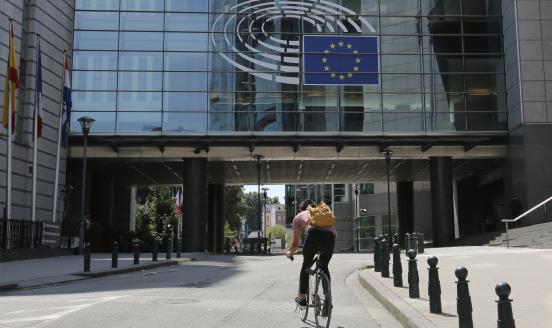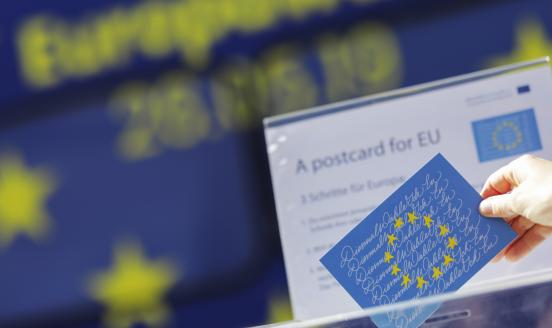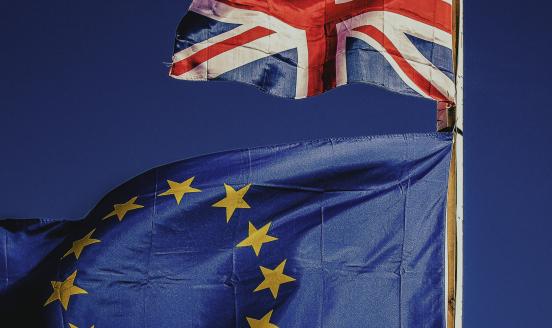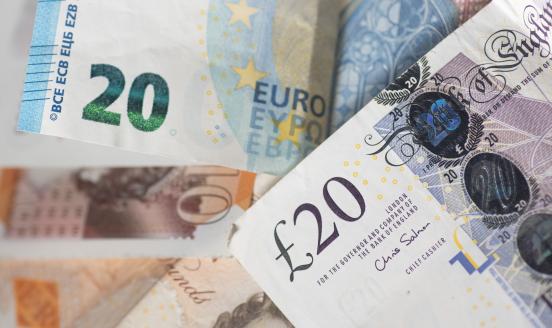Brexit debate ignores UK's privileged position in Europe
The UK enjoys opt-outs from many EU policies, without its influence in the EU being diminished. But the UK’s privileged position in the EU has been ne
So far, much of the UK’s EU referendum campaign has consisted in bandying around statistics, with both sides throwing impressive and memorable figures into the public discussion. The UK Treasury has outlined three post-Brexit scenarios, all resulting in significant losses for households ranging from £2,600 to £5,200 a year. At the same time, the Stronger In campaign claims that each household contributes an equivalent of £340 to the EU every year, but that the benefits from EU membership amount to £3,000 per household.
At the other end of the spectrum, the Leave.EU campaign claims that the EU’s common agricultural policy adds £400 to every family’s living costs per year. The Vote Leave website features a ticking clock showing all UK funds given to the EU since it joined in 1973, said to be £510 billion and growing. The discrepancies between the different figures are difficult to understand, as they are all estimates, presented with little explanation as to how they are calculated.
These statistics make firm assertions and predictions, but with methodological differences that make it virtually impossible to compare the claims. This is often done on purpose. Both sides are willing to dress up figures in order to provoke greater reactions from voters. For instance, instead of referring to ‘individuals’, the UK Treasury refers to ‘households’ and Leave.EU to ‘families’, which produces a greater figure. As a consequence, the campaign involves regular (and unproductive) skirmishes between both sides of the debate about these statistics.
Both sides in the campaign neglect the most important part of the debate: the qualitative, unquantifiable value for the UK to be able to cooperate in a common European framework.
Discussions over these numbers also hide the fact that the vast majority of academic economists agree that the costs of Brexit would be significant, and would outweigh the possible benefits of the UK leaving the EU. Economist Simon Wren-Lewis recently lamented that this unusual agreement among economists remains unheeded in the polls. Both sides in the campaign neglect the most important part of the debate: the qualitative, unquantifiable value for the UK to be able to cooperate in a common European framework.
Before the UK joined the EU’s predecessor, the European Economic Community (EEC), in 1973, the UK found itself in a situation that many Brexit supporters would like to go back to today. The UK was a member of the European Free Trade Area (EFTA), safe from the integrationist stance of the six EEC members states committed to an ‘ever closer union’ in the Treaty of Rome. The EFTA was a loose, less committal form of cooperation than the EEC.
But the EFTA soon proved to be of limited economic and political importance. And UK access to the common market was confronted with the EEC external tariff. Perhaps worst of all was that the UK had no say in EEC policies like the external tariff, which so severely impacted London. The UK government thus decided to apply to join the EEC, in order to be able to influence EEC integration from within. The risks of being sidelined clearly outweighed the benefits of staying outside.
Being able to influence the EEC/EU from within, instead of being isolated outside, has proved a vital asset in UK foreign policy in the past 40 years. Successive UK governments have managed to tailor the UK’s EU membership to suit them, managing to get the best of both worlds: being part of the EEC/EU single market, and avoiding the EU policies they did not like.
In spite of its promise to be a committed EEC member right after the 1975 referendum, the UK government immediately managed to opt out of the European Monetary System (EMS) created in 1979. The UK benefits from a twice-revised budgetary rebate, negotiated in 1974-5 and then again in the early 1980s. It enjoys numerous other opt-outs, on the euro, Schengen, and in the areas of freedom, security and justice. The UK also gained an opt-out from the Charter of Fundamental Rights of the European Union, and refused to sign the fiscal compact.
British diplomacy secured special treatment for the UK that no other EU member state has ever enjoyed.
Since the Treaties of Rome were signed, the UK has been the only EU country that monopolised EU member states’ attention for months, on three occasions (mid-1970s, early 1980s, and mid-2010s), to revise the terms of its EU membership in order to stay in the EU. The most recent round of ‘renegotiation’ has even allowed the UK government to formally exclude itself from the ‘ever closer union’ motto of EU integration. In sum, British diplomacy secured special treatment for the UK that no other EU member state has ever enjoyed.
But UK influence from within the EU has not been limited to opt-outs. UK governments have also consciously tried to shape EEC/EU policies. For instance, the UK government was instrumental in strengthening European Political Cooperation (EPC), the embryo of the EU’s Common Foreign and Security Policy (CFSP).
EPC was an informal foreign policy coordination mechanism enabling EEC member states to speak with one voice, if they so wished, on the international stage. The UK government, under Prime Minister Margaret Thatcher, was behind the initiative leading to the so-called London Report on EPC adopted in October 1981.
The London Report improved EPC by establishing a small permanent staff and a crisis procedure (this sprang from the UK’s disillusionment at the EEC’s slow reaction after the USSR’s invasion of Afghanistan in 1979). The report also established that the Commission would be fully associated with EPC, which the French government had long opposed. This allowed member states to use supranational tools to effectively implement EPC decisions on the international stage – a point that the Thatcher government strongly advocated.
In 2014 the UK successfully pressed for the creation of an EU commissioner for financial service.
More recently, in 2014 the UK successfully pressed for the creation of an EU commissioner for financial services, which was then granted to former UK minister Jonathan Hill. One of the central discussions Commissioner Hill has been leading since his nomination concerns the implementation of a Capital Markets Union. Given that the UK represents a significant part of the EU’s financial markets, the UK government has an obvious direct interest in trying to influence such policy discussions within the EU.
UK governments successfully negotiated this special treatment over the years, but these successes remain strikingly absent from the campaign. Both sides of the debate prefer to focus on the quantifiable material gains or losses from EU membership, rather than the ability to influence EU policymaking.
The UK’s EU referendum debate suffers from the fact that the value of this ability to cooperate in a common European framework is largely immeasurable. Any process of institutional cooperation, by definition, implies that all parties try to reach an agreement that accommodates most but may be frustrating for some.
Brexit supporters appear to think that the UK’s existing opt-outs are not enough. This ignores the fact that if the UK leaves the EU, it will find itself back in the position it had in the 1960s: heavily impacted by the EU’s regulations and policies, but unable to influence them. As Guntram Wolff and André Sapir have argued, the UK might nominally recover its sovereignty, but this would largely be an illusion.
In the current situation, the UK retains an influence on EU policy processes, while opting out of many policies it does not want to participate in. This is a strategically enviable position, since there is one important difference between the EU of 2016 and the EEC of the 1960s: today’s EU is much larger, and much more powerful than yesterday’s EEC.
Losing influence over EU policymaking would be much more harmful to the UK now than it was in the 1960s, or than it could have been after the UK’s first EU referendum in 1975. By leaving, the UK will not only isolate itself from European cooperation. It will also lose all the benefits of the special status in EU that it has built through hard-won diplomatic successes over the past four decades.
The EU’s ability to be a multi-speed group of states offers the greatest chance for its members to cooperate in a common European framework. This reasoning also applies to the other member states benefiting from opt-outs, or currently uneasy with some EU policies. There is an intrinsic value to being part of a group of European states that is aware of the need to reform itself and improve its cooperation mechanisms.
Misunderstanding the intrinsic value of European cooperation was at the heart of the UK’s miscalculation in 1956, when it decided to opt out of founding the EEC. Learning from this misunderstanding was at the heart of the UK’s decision to apply, join, and remain in the EEC in the 1960s and early 1970s. The UK’s EU referendum of 23 June 2016 will be about the same questions: UK voters must decide on the intrinsic value they place in European cooperation.
No doubt this cooperation can be mistaken at times, slow, debatable, frustrating, and incremental. It is nonetheless vital in a globalised world. Whatever the figures used, being sidelined from EU discussions is more costly than being part of them.



